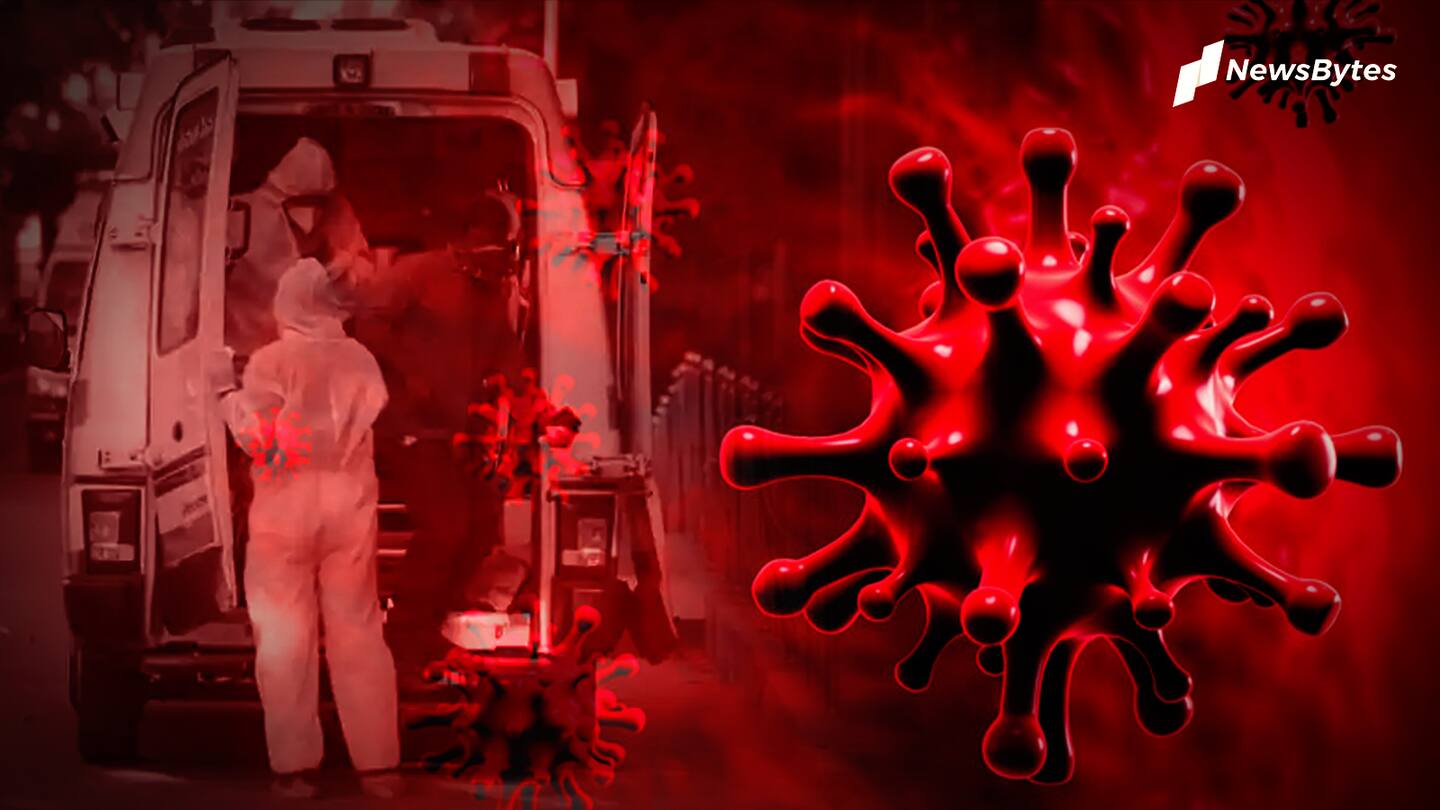
With 14,516 coronavirus cases in 24-hours, India records steepest jump
What's the story
India recorded the biggest jump in coronavirus cases again with 14,516 new infections being reported in the last 24 hours. With this, India's tally stands at 3.95 lakh, the Union Health Ministry said on Saturday morning.
The number of deaths reached 12,948. 213,831 have been cured/discharged/migrated, the government said.
Worryingly, cases in Delhi crossed 50,000 after 3,137 cases were reported on Friday.
Data
Delhi is dangerously close to Tamil Nadu's infections' tally
Reportedly, 375 lost their lives in the last 24 hours nationwide. The fact that India's recovery rate stands at 54.12% has given some respite.
Maharashtra continues to be the worst-affected state, with 124,331 cases and 5,893 deaths.
The difference between second and third worst-hit states isn't massive. Tamil Nadu has 54,449 cases and 666 deaths, whereas, with 53,116 cases, Delhi has 2,035 deaths.
Looking back
Delhi saw an exponential rise in coronavirus numbers
Delhi has been reporting over 2,000 cases for several days now. In five days, the number of infections rose by 10,000.
The first coronavirus case in Delhi was recorded on March 2. After that, the National Capital took 40 days to reach the 1,000-mark but another 37 days for the tally to reach 10,000.
The next 10,000 cases were recorded in just 14 days.
Rate
Delhi also beat Maharashtra in positivity rate
In fact, in the first two weeks of June, Delhi trumped Maharashtra as far as positivity rate is concerned.
Between June 5 and 18, Delhi's positivity rate stood at 30%, while Maharashtra's was 18%.
Between May 7 and May 21, this rate was 7% in Delhi.
The other states with high positivity rates are Telangana (12%), Gujarat (10%), and Tamil Nadu (10%).
Prediction
Panel predicted Delhi will reach 50,000 cases by mid-June
A five-member panel, formed to trace the coronavirus graph in Delhi, had said cases will reach 50,000 by mid-June and 100,000 by the end of the month. The tally touched 50,000 four days later than they had predicted.
According to HT, the city has 12,208 beds especially for coronavirus patients, but the healthcare infrastructure is already overwhelmed, forcing the Centre to get more involved.
Details
Before peak, 4-7 million would have been infected in Delhi
Dr. T Jacob John, former head of virology department at Vellore's Christian Medical College, said before the pandemic reaches its peak in Delhi, about 4-7 million would have been infected.
"The trend shows, this will happen quickly, probably over the next two weeks. The infections will peak in Delhi and Mumbai first, after which they will pick up in the rural areas," he added.
Deaths
Nearly 50,000 could die in Delhi, feel experts
He added that even with a 1% mortality rate, Delhi will log somewhere between 40,000 and 60,000 deaths.
"The mortality rate will go up slightly as Delhi nears the peak, because of hospitals being over-burdened," Dr. Jacob said.
Separately, Amit Singh, associate professor at Centre for Infectious Disease Research of Indian Institute of Science, Bengaluru, said testing, tracing, and isolating are important.
Quote
"Vulnerable areas must be locked down too"
"We need real-time data from hospitals on how many positive and suspected patients are ending up in hospitals, ICUs, and ventilators. If the number is going up then Delhi should consider locking down vulnerable areas," Singh told HT.
Letter
According to L-G, home quarantine is reason behind spurt
With healthcare facility being overwhelmed, L-G Anil Baijal blamed home quarantine.
"Delhi is reviewed regularly in the Ministry of Home Affairs and it was observed that 'Home Isolation' without physical contact to monitor the patients may be a reason for an increase in the spread of increase in COVID-19 infections in Delhi," he said in a letter to Chief Minister Arvind Kejriwal.
Quarantine
Delhi made institutional quarantine mandatory
Subsequently, five-day institutional quarantine was made mandatory for those who test positive.
"Mandatory physical verification of each case under home isolation is to be carried out by the Surveillance teams of the District Surveillance officers under the overall supervision of the District Magistrate," Baijal said.
Meanwhile, to make tests affordable, Delhi fixed its rate to Rs. 2,400.